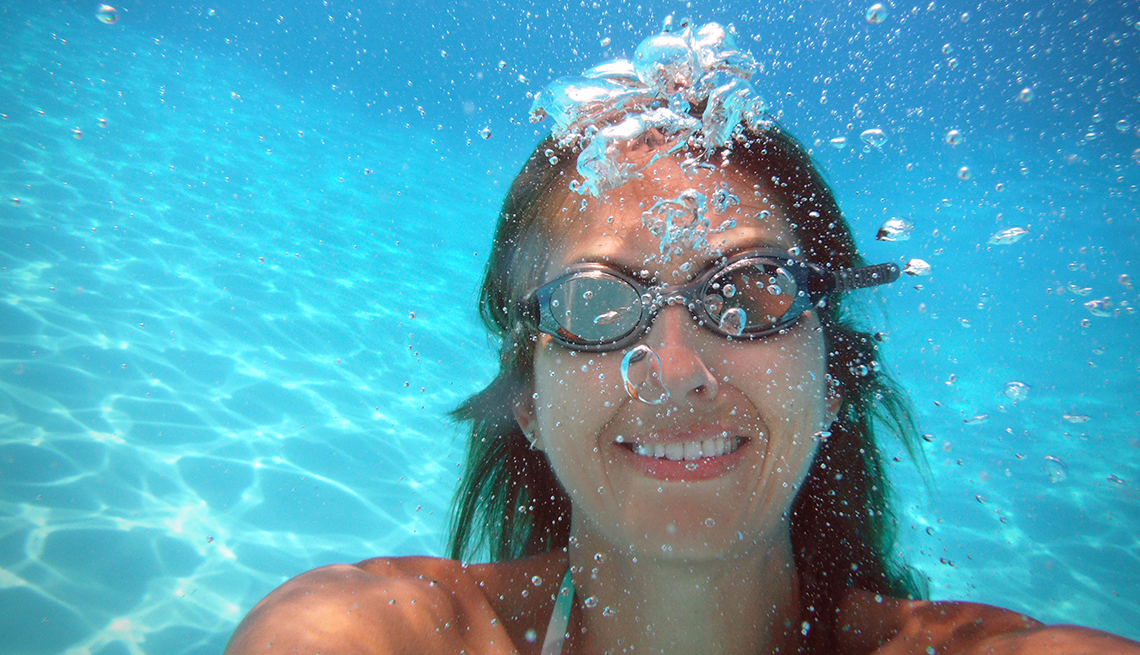
- Select a language for the TTS:
- UK English Female
- UK English Male
- US English Female
- US English Male
- Australian Female
- Australian Male
- Language selected: (auto detect) - EN
Play all audios:
"Keep in mind that people in pools rub their eyes more and that can cause corneal abrasions, which can lead to infections,” Layman adds. It's just like anything else you should
probably avoid: The more you expose yourself to it — in this case, waterborne chemicals and contaminants — the worse you feel. Here's what you should watch out for the next time you go
swimming: CHLORINE- AND BROMINE-TREATED POOLS Unfortunately, the very stuff that is added to our pools, spas and hot tubs to keep us safe can damage our eyes. Though they kill many bacteria,
viruses, and parasites, chlorine and its colleague, bromine, can hurt the eye, especially after long periods of exposure and when they are mixed with the sweat and bacteria that washes off
swimmers’ bodies. This creates an irritant known as chloramine, which can cause bloodshot eyes. "Some older adults may have more sensitivity to chemicals, especially if they have dry
eye disease,” Layman says. And people of all ages are more likely to have dry eyes these days, because when we look at a screen — computer, TV, phone — we blink less. A humidifier can help
combat this. You can also limit your screen time or try the 20/20/20 strategy: Every 20 minutes, look away from the screen for 20 seconds to see something 20 feet away, the experts at Mayo
Clinic recommend. Chlorine, “a chemical irritant,” can cause red eyes, blurred vision, light sensitivity and “feelings of grittiness and dry eye,” Layman says. It can also “disrupt the tear
film,” which is the protective, three-layer coating that keeps your eye moist and helps you cry. This damage inflicted by chlorine is typically temporary. The same is true for bromine, which
can also cause redness and teary eyes, especially when a pool's chemical and pH levels aren't properly calibrated. And remember: Disinfectants like chlorine and bromine don't
kill all contaminants. They can't fully protect you from the viruses, bacteria and parasites that can make you sick. A pool is “a shared water experience,” as the Centers for Disease
Control and Prevention (CDC) puts it, but many people don't think of it that way. That's why some people go in the water when they shouldn't: that is, when they're sick
(with diarrhea) or have open wounds. Various foreign objects can fall into a pool and muddy the water: insects, leaves, diapers, etc. ‘Pink eye’ (conjunctivitis) and adenoviruses can be
caught even in properly disinfected pools.






